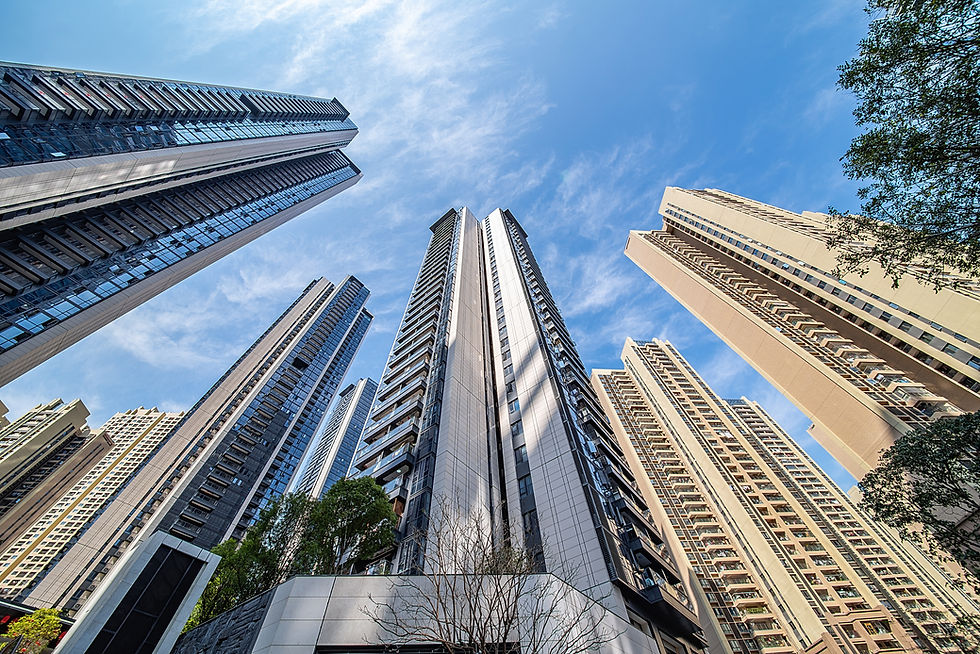What Should I Look for When Reviewing a Commercial Lease?
- marketing08413
- Nov 12, 2025
- 4 min read
A commercial lease is one of the most important agreements a business will enter into. It establishes not only the cost of occupying a property but also the rights, responsibilities, and flexibility of both tenant and landlord throughout the lease term.
Before signing, it is essential to carefully review the lease to ensure the terms align with your business goals, operational needs, and financial expectations.
Understanding what to look for helps you make informed decisions and prevents surprises down the line.

Lease Type and Structure
The first step in reviewing any lease is understanding its structure. Lease types determine which expenses are included in your rent and which are paid separately.
Common examples include:
Full-Service Lease: The landlord covers most building operating expenses such as utilities, maintenance, and property taxes.
Modified Gross Lease: Some expenses are included in the rent, while others, like janitorial services or utilities, are billed separately.
Triple Net (NNN) Lease: The tenant pays base rent plus a share of property taxes, insurance, and maintenance costs.
Knowing which lease structure applies helps you calculate your total occupancy cost and plan your budget with clarity.
Rent, Increases, and Additional Costs
Beyond the base rent, most leases include details about rent increases and additional expenses. These may include annual rent escalations, Common Area Maintenance (CAM) fees, property taxes, insurance, and utilities.
It is important to understand how these costs are calculated, when they occur, and how they may change over time. Even small annual increases can significantly affect your long-term budget. A clear breakdown of these expenses allows for accurate financial planning and minimizes the risk of unexpected costs.
Lease Term and Renewal Options
The length and flexibility of your lease can have a major impact on your business operations.
A shorter lease may provide flexibility if you anticipate changes in your space needs, while a longer lease often offers cost stability and stronger negotiating power. Pay attention to renewal options, notice requirements, and renewal rate adjustments. If the lease allows for early termination, review the terms carefully to understand any fees or conditions that may apply.
Well-defined renewal and termination clauses ensure you have options as your business evolves.
Maintenance and Repair Responsibilities
One of the most critical sections of any commercial lease is the allocation of maintenance and repair responsibilities.
Clarify which party is responsible for routine maintenance, HVAC systems, plumbing, and structural components such as the roof and foundation. In multi-tenant properties, the lease should also specify how common area upkeep, parking lot repairs, and landscaping are managed.
Before signing, confirm the current condition of all major systems and request documentation if necessary. Transparency in this area prevents disputes and helps maintain the property efficiently.
Use Clause and Exclusivity
The use clause outlines what types of business operations are permitted within the space. It ensures the tenant’s intended use complies with zoning regulations and landlord requirements.
For tenants in retail centers or mixed-use developments, an exclusivity clause can also be beneficial. This provision prevents the landlord from leasing nearby space to a direct competitor, protecting your market position and customer base.
Sublease and Assignment Rights
Flexibility is key in a changing business environment. Review your lease for sublease or assignment provisions, which allow you to transfer all or part of your leased space to another party if your needs change.
These clauses can provide important options if your business expands, relocates, or undergoes restructuring. Be aware that most landlords require written approval before a sublease or assignment, so it is best to understand the process upfront.
Tenant Improvements and Build-Out
If the space requires renovations or customization, the lease should clearly outline tenant improvement (TI) terms.
Confirm who is responsible for construction management, how improvement allowances are distributed, and what deadlines apply. Establishing these details before work begins helps avoid project delays and ensures the improvements align with your business needs.
Insurance and Liability
Both the tenant and landlord must maintain proper insurance coverage. Tenants are typically required to carry general liability insurance, property coverage for contents, and any other policies relevant to their business operations.
Meanwhile, the landlord maintains insurance on the building structure and common areas. Understanding these requirements ensures your business is adequately protected and compliant with lease terms.
Default, Remedies, and Legal Terms
No one plans to default on a lease, but understanding the procedures in case of a dispute or missed payment is essential.
Review the sections addressing notice periods, grace periods for late rent, penalties, and methods of dispute resolution. Knowing how these processes work ensures both parties are clear on their rights and responsibilities in the event of a disagreement.
The Role of Professional Guidance
Commercial leases are complex documents that often include technical and legal language. Partnering with an experienced commercial real estate broker, along with a qualified attorney, ensures that your interests are well represented and that all terms are fully understood before signing.
Brokers bring market expertise to the table, helping clients compare lease structures, benchmark rental rates, and negotiate terms that support their long-term success.
Final Thoughts
A well-reviewed lease lays the foundation for a strong and stable occupancy. Taking the time to understand your lease terms — from financial obligations to renewal options — can prevent challenges and create confidence in your real estate decisions.
With the right guidance and a proactive approach, the lease review process can be straightforward and empowering. Whether you are a tenant securing your first space, a landlord preparing to welcome new occupants, or an investor managing assets, thorough lease review and professional support are key to building long-term success in today’s commercial real estate market.
Written by LevRose CRE with assistance from: LevRoseCRE.(2024)
ChatGPT [Open AI]. https://chat.openai.com/



